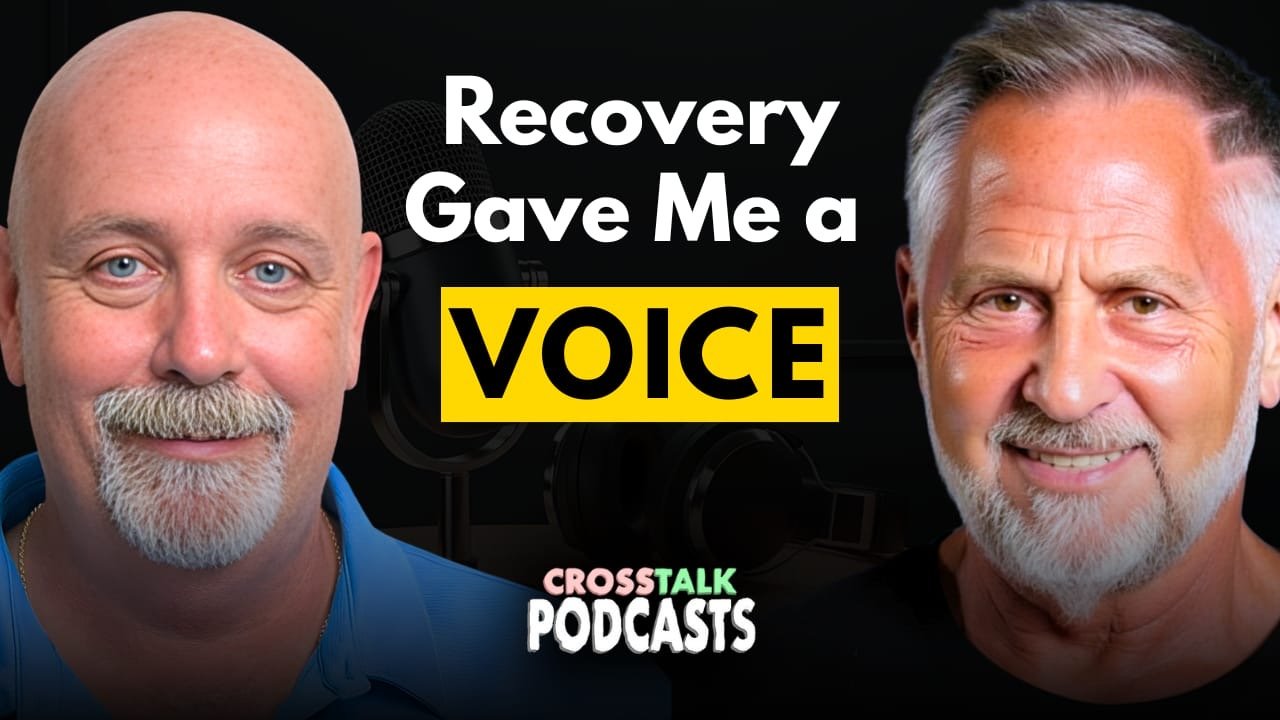Finding Light in the Darkness: Carrie’s Journey from Olympic Glory to Recovery
Listen or watch on your favorite platforms
Carey, a 3-time Olympic gold medalist, opens up about the private struggles that haunted her long after the applause faded. On the surface, she had it all fame, family, success, but internally, she was drowning.
In this powerful episode of Cross Talk Podcast, we meet Carrie, an Olympic gold medalist whose life story is a testament to resilience, vulnerability, and the transformative power of recovery. From the heights of athletic achievement to the depths of addiction, Carrie’s journey is one of courage, self-discovery, and ultimately, redemption.
The Highs and Lows of a Champion
At just 16 years old, Carrie stood on the Olympic podium, a gold medal around her neck. Yet, instead of pure joy, she felt like a fraud. “I remember standing on the awards platform having the gold medal put around my neck and feeling like a fraud,” she recalls. This moment of imposter syndrome foreshadowed a lifelong struggle with self-worth, one that would later intertwine with addiction.
Growing up in an alcoholic household, Carrie found solace in swimming. “Nobody could see me cry underwater,” she says, describing how the pool became her sanctuary from the chaos at home. But the pressure to perform, coupled with unresolved emotional pain, left her vulnerable to the grip of alcohol.
The Turning Point: When Winning Wasn’t Enough
Four years after her Olympic triumph, Carrie faced a crushing setback at the 1988 Olympic trials. Ranked number one in the world, she faltered under the weight of expectation and missed the team. “I lost this belief in myself,” she admits. That night, she drank for the first time with the sole purpose of numbing her pain—a dangerous pattern that would escalate over the years.
For decades, Carrie’s life appeared perfect from the outside: a successful career, a loving marriage, and two beautiful daughters. But internally, she was drowning. “I had this big, giant hole in my soul,” she confesses. What began as social drinking spiraled into secrecy and shame, until she reached a breaking point.
The Road to Recovery
By her 40s, Carrie was in the throes of full-blown alcoholism. She describes the devastating toll it took on her family and her sense of self. “I was told it would be better for my kids if I just disappeared,” she shares, highlighting the stigma surrounding addiction.
After multiple attempts at treatment, Carrie hit rock bottom. “I had lost every amount of will to live,” she says. Yet, in that darkness, she found a glimmer of hope. She made a pact with herself: if she survived detoxing alone, she would give recovery one more try. That decision saved her life.
A Message of Hope
Carrie’s story is a powerful reminder that recovery is possible, no matter how far we fall. Her advice to those struggling? “Don’t ever give up. Recovery is possible. It’s alive. It’s well. It’s happening all around you.”
If she could speak to her younger self, Carrie would tell the scared little girl and the heartbroken mother the same thing: You are enough. “Swimming was what you did, not who you were,” she reflects. Today, she embraces a life of sobriety, healing, and purpose—proof that even the deepest wounds can mend.
Final Thoughts
Carrie’s journey is a beacon of hope for anyone battling addiction or self-doubt. Her honesty about the highs and lows of her life reminds us that true strength lies in vulnerability and the courage to seek help.
If you or someone you love is struggling, remember Carrie’s words: As long as we’re still breathing, we’ve got a chance.
FAQs
Can you become an alcoholic later in life?
Yes, many people—especially high-functioning individuals—develop alcoholism in their 30s or 40s.What are signs of high-functioning alcoholism?
Drinking regularly, hiding alcohol use, justifying drinking, and appearing “fine” on the outside are all red flags.Can perfectionism contribute to addiction?
Absolutely—perfectionism can mask inner pain and fuel the desire to numb emotions through substances.Do Olympians struggle with addiction?
Yes. The pressure, identity loss after competition, and perfectionism can lead athletes into addiction.What if I’ve relapsed multiple times is recovery still possible?
Yes. Many people find lasting recovery after several failed attempts. Carrie did after her fourth treatment.
Related episodes
ABOUT CROSSTALK
CROSSTALK reveals real stories of everyday people and notable figures, sharing their journeys from struggles to life-changing 'aha' moments with all kinds .


 Spotify
Spotify














